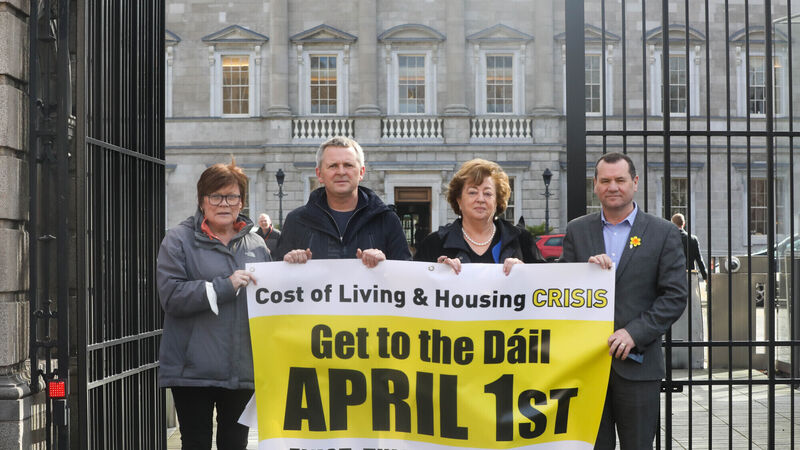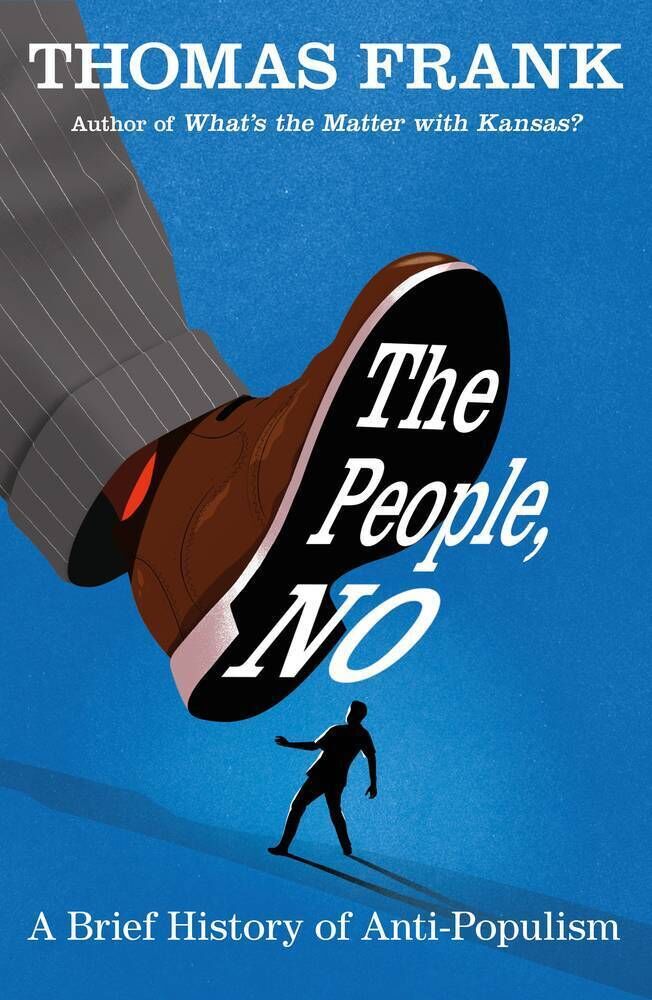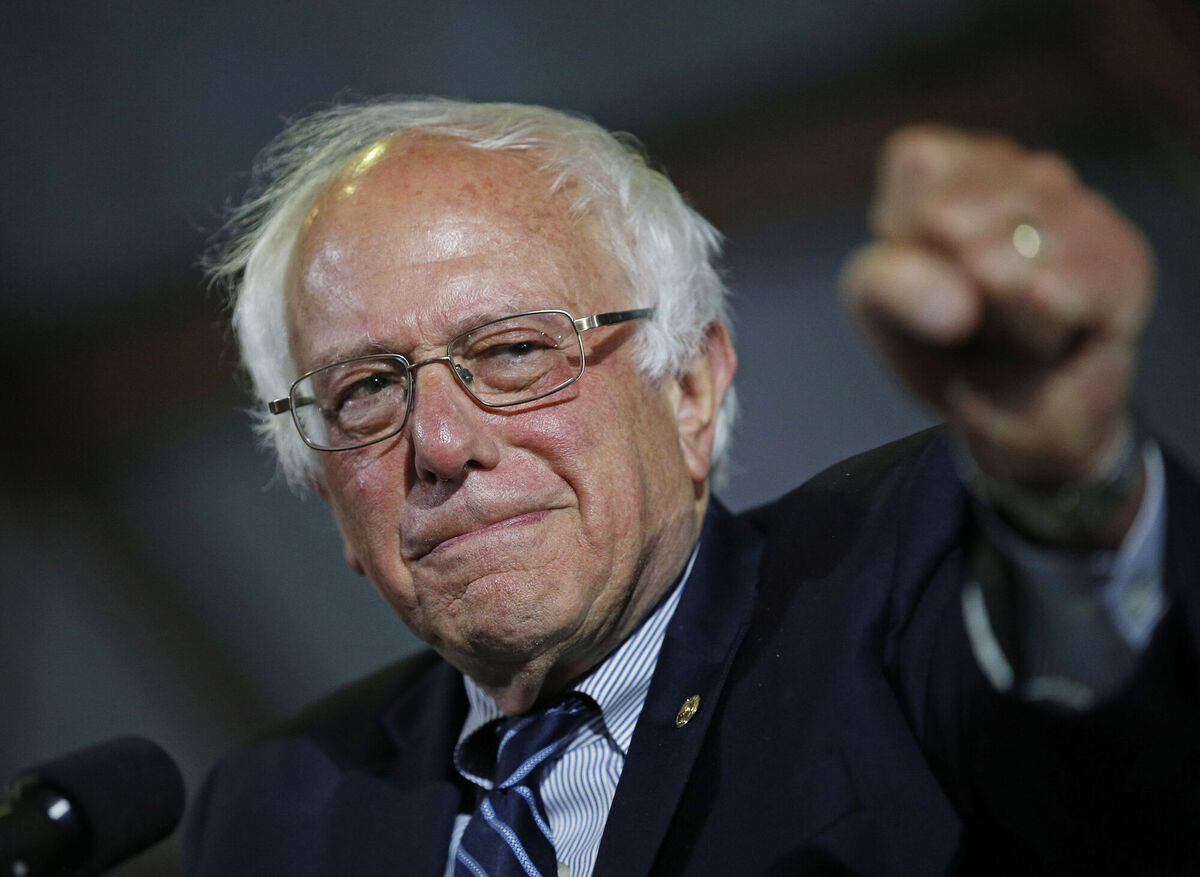Terry Prone: Coalition parties may fear ‘populism’ but they dismiss it at their peril

TDs Joan Collins (Independents 4 Change), Richard Boyd Barrett (People Before Profit-Solidarity), Catherine Murphy (Social Democrats), and Paul Donnelly (Sinn Féin) publicising the recent cost of living and housing protest. Despite what some in the Coalition feel, no one in Ireland is afraid of ‘populists’. File Picture: Leah Farrell/Rolling News
Whereas Simon Harris and Patrick O’Donovan successfully led the campaign against Ó Broin, the populism issue is having problems growing up to be a worthwhile campaign.
It gets thrown into radio interviews — and, oddly enough, is rarely challenged in those interviews, perhaps because political interviewers know their listeners never rise to it.
It’s never been part of the Irish lexicon and is much more an American tradition, although even in the US, among the insults tossed at Donald Trump, “populist” has never been that frequent.

Arguably, the best definition of populism is to be found in Abraham Lincoln’s 1863 Gettysburg address, that marvellous oratorical miniature wherein he promised that “government of the people, by the people, for the people, shall not perish from the earth”.
Populism is all about the will of “the people” as opposed to whatever elites are in power at any given time.
According to Thomas Frank, who has written more than one book on the topic, fear of populism in the US derives from an anxiety that the ordinary people are getting above themselves: moving beyond control.
He maintains that “populism” is the word that comes to the lips of the respectable and the highly educated when they perceive the global system going haywire.
“Populism, for them, is a one-word evocation of the logic of the mob; it is the people as a great rampaging beast. What has happened, the thinkers of the Beltway and the C-Suite tell us, is that the common folk have declared independence from experts and along the way from reality itself…
"This imagined struggle of expert versus populist has a fundamental, almost biblical flavour.
"It is a battle of order against chaos, education against ignorance, mind against appetite, enlightenment against bigotry, health against disease.
Before Donald Trump and Bernie Sanders upended US politics, Barack Obama put together an administration peopled by the brightest and best, many of them from academia, but some also from organisations devoted to improving the world.
The Democrats had once been close to the working class, had fought for the marginalised — and retained the trailing conviction that this was what they were still doing, just as people who rose up from poverty retain the doubtful conviction that they understand current poverty.
The Democrats never abandoned their belief that they were the best party for the poor. However, with which that belief regnant, they developed in parallel an elitist approach to the management of democracy, which, according to Frank, “holds that public policy should be made by a ‘consensus of elites’ rather than by the emotional and deluded people”.
“It regards mass protest movements as outbreaks of irrationality. Marginalised people, it assumes, are marginalised for a reason. The critical thing in a system like ours, it maintains, is to allow members of the professional political class to find consensus quietly, harmoniously, and without too much interference from subaltern groups.”
That viewpoint has generated recent echoes in this country from left-wing politicians who believe the industrial peace delivered by Bertie Ahern’s social partnership model emasculated the trade unions while calcifying the grip on power of right-wing elites.

The populism accusation isn’t confined to the US. The “stay” side of the British commentariat, post-Brexit, tended to regard Boris Johnson’s Conservatives as headbanging populists who had grievously misled the innocent British voters with their promises to make the NHS rich beyond the dreams of avarice. (This criticism may be true, but also portrays British voters as gullible gobshites.)
In France, the same accusation is being made against the protesters who have effectively gone to war with president Macron to defend the pension age. It’s populist in that what we’re seeing through the smoke of the petrol bombs is a movement in which ordinary citizens demand what they want.
It would be foolish to regard the Parisian situation as an outpouring of unjustified resentment by coddled French millennials led by demagogues. Foolish because that was exactly what Hillary Clinton did in her disastrous campaign for the presidency. While there can be no doubt that external interference influenced the failure of her campaign, neither can it be doubted that she represented the apotheosis of the drift of the Democratic Party away from organised labour into a party “of experts, of technocrats, of white-collar professionals who admired fancy college degrees but had little interest in working-class solidarity”.
Hillary Clinton insulted those who supported Donald Trump by calling them “deplorables”. They were uneducated, unsuccessful, unsupportive of liberal policies and — worst of all — were falling for Trump. She also displayed a pleasing continuum of insult by suggesting that Bernie Sanders wasn’t liked by anybody, to which his growing, rolling popularity gave the lie.

Bernie Sanders managed to establish that he had damn-all respect for elites and experts and wanted to hear the voices of the unheard, of the people. He did it while eschewing big corporate donations (not that big corporations were actually falling over themselves to stuff dollars into his famous mittens) on the basis that if you take their money, you end up muting any opposition you feel towards their policies.
Pointing out that Edward Teller, the physicist, had, in the 1950s, warned about the inevitability of the greenhouse effect leading to tragic climate change, he further pointed out that corporate America continued fossil fuel use, asking: “What happened to the CEOs who betrayed the American people and the global community?
“Were they fired from their jobs? Were they condemned by pundits on cable television and the editorial boards of major newspapers? Were they prosecuted? Did they go to jail for their crimes? Nope. Not at all. Not a one of them.”
There’s populism, red in tooth and claw. Easy to understand. Condemn it at your peril.






